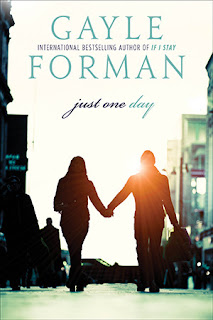Publication date: 4th June 2015
Published by: The Borough Press
Genre: Contemporary Romance
My Synopsis
Emma Woodhouse lives in the tight-knit English country village of Highbury. The daughter of a 'gentleman farmer', she is rich, clever and not particularly interested in the pursuit of romantic love - or at least not for herself. Her older sister has left home and moved to London and her former - wait for it - governess (yes, I did say governess), Anne Taylor, continues to live in the stately home Emma grew up in with her overly cautious and worrisome father, while she attends university. After graduating, she returns to Highbury with a plan to start her own business - but not right away since, If you are Emma Woodhouse, employment is not something you need to rush into.
Having nothing particular to do with her time, Emma's return creates mayhem as she interferes in the lives of her friends and neighbours, in what she tells herself are selfless attempts to make their lives better. The hapless victims include the impressionable Harriet Smith, a teaching assistant at an English language school for foreign teenagers, Anne Fairfax, a young musician who lives with her poverty-stricken aunt and great-aunt, and Frank, the son of Mr George Weston, a neighbour in the village. Frank has spent most of his life in Australia and has come to Highbury with a plan - one that gets derailed thanks to Miss Woodhouse. She also works her magic on the not-so-hapless Philip Elton, the local vicar. The only person who seems immune to Emma's meddling is her next door neighbour, George Knightly. It becomes apparent that Emma needs a firm hand, or at least bringing down a peg or two, for her own good. Perhaps George is the person to do just that....
My Review:
This is the 3rd book released by the Austen Project, which invites carefully selected (well established and respected) authors to write a modern version of each of Jane Austen's novels. That this particular novel is a modern retelling is debatable, however, since the original story has not been altered that much. For me, the only thing modern about it is the setting, which is exactly 200 years after the original publication. The result of this is fundamental flaws and niggling plot holes that, understandably, could not be avoided. (Some of these are alluded to in my synopsis.) I don't think this is by accident as the approach enhances comedy value - which I think is what McCall Smith was aiming for. My solution to its unfeasibility was to acknowledge that it is not just a work of fiction but complete fantasy that required me to suspend me disbelief and, in doing so, allowed me to focus more on what is great about it - and there is a lot that is great about this book.
Having this story in a contemporary setting does feel a bit 'chick-lit' like*. That said, it is the kind of chick-lit that most novels of that kind can only aspire to. The character development is particularly good, because the reader does get more backstory and therefore more of an insight into the characters than the original. Not only the principal ones like Emma, and Knightly but pretty much all of them. This added another dimension to the novel (both versions). As I mentioned before, it is also told with great humour. There are many laugh-out-loud moments that made it such an enjoyable read for me. Mr Woodhouse, in particular, is a character of comedic value. You get the impression that McCall Smith is poking fun at these upper-class folk - but in a nice way. We also see their humane side, Mr Knightly, in particular, comes across as a kind and thoughtful person who loves his village and genuinely cares about the people who live there, regardless of their situation.
I am a fan of Jane Austen but whenever I read her books, I always think about what it would have been like for my ancestors in those days. Being a descendent of slaves kept by the British in the West Indies, I cringe at the frivilous lives of these people who benefited so greatly from the extreme suffering of others. Jane Austen is conveniently blind to this fact, whereas McCall Smith is not. The lovely Mr Knightly brings this up in a conversation with Mr Woodhouse - a conversation that is played out in a way that I have heard many times myself. Very nicely done indeed!
Emma is not a likeable character - she wasn't in 1816 and she isn't in 2016. The problem with Emma is that (a) she has too much time on her hands, (b) she had never experienced hardship and is completely out of touch with the lives of those who do and (c) she is an intelligent person who needs intellectual stimulation - a way to put that overactive mind of hers to (good) use - and is not getting it. In 1816 her opportunities would have been very limited. Going to university or running a business would not have been an option, so it is easier to make allowances for the original character, compared to the modern one. Her predicament is a lethal cocktail that many of the characters in the book fall victim to. You will more than likely get irritated with her. You may even become infuriated with her.
I like flawed characters because they make a story interesting. She is not all bad and she is self-aware; she recognises that her behaviour is questionable - but then she convinces herself it's okay. She does grow up and learn her lesson but, what I really liked was that she remained the same (flawed) person throughout.
Emma is, in my view, Jane Austen's second best novel (after Pride and Prejudice) and this version goes some way of demonstrating what a great story it is.
*Then again, I am convinced that chick-lit has evolved from the Jane Austen novel, since the sub-genre kick-started following the publication of Bridget Jones's Diary, a novel inspired by Pride & Prejudice.
More Austen Project reviews
Sense & Sensibility by Joanna Trollope (no. 1) -
Northanger Abbey by Val McDermit (no. 2)
Eligible by Curtis Sittenfeld (no. 4)































